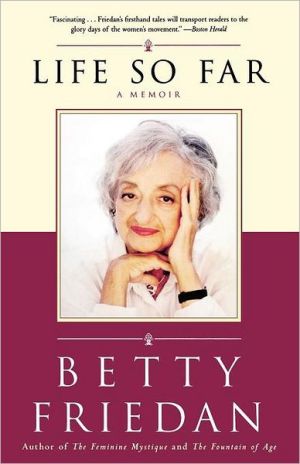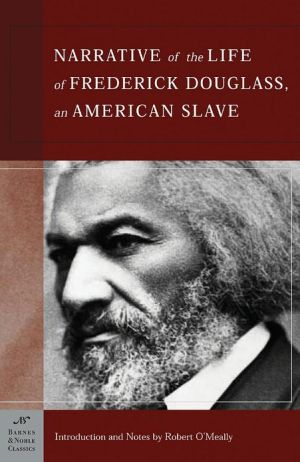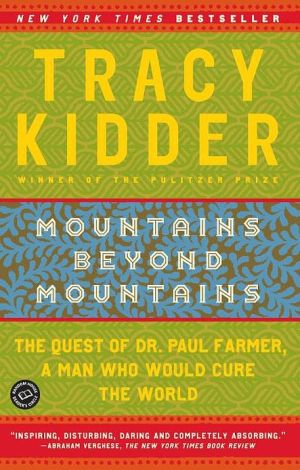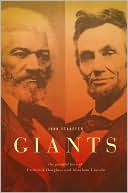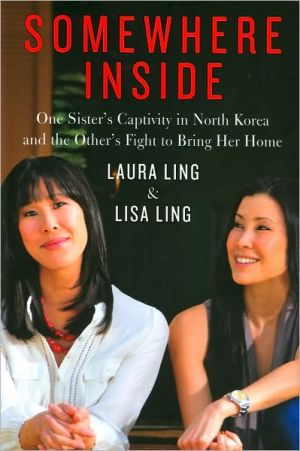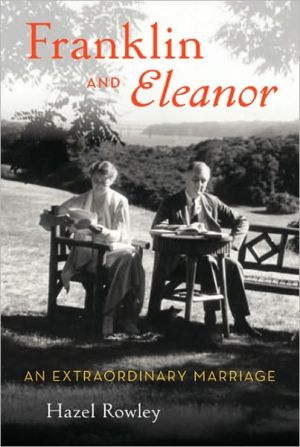Life So Far: A Memoir
It was Betty Freidan herself, in Life So Far, who spoke about her life and career and told us what it was all like from the inside. With the unsparing frankness that made The Feminine Mystique one of the most influential books of the century, Friedan looked back and told us what it took, and what it cost, to change the world. She took us on an intimate journey through her life, from her lonely childhood to the founding of NOW and her brilliant, contentious, and brave leadership of the...
Search in google:
It was Betty Freidan herself, in Life So Far, who spoke about her life and career and told us what it was all like from the inside. With the unsparing frankness that made The Feminine Mystique one of the most influential books of the century, Friedan looked back and told us what it took, and what it cost, to change the world. She took us on an intimate journey through her life, from her lonely childhood to the founding of NOW and her brilliant, contentious, and brave leadership of the Movement. Life So Far chronicles the secret underground of women in Washington in the early sixties who drafted Friedan to spearhead an "NAACP" for women, and the daring of many who spoke out against discrimination. Friedan recounts the political infighting and dirty tricks that occurred within the Movement as well as the forces that tried to destroy it and how hard she fought to keep the Movement practical and free of extremism, including "man-hating." Friedan is equally frank about her twenty-two-year marriage to an advertising entrepreneur, which deteriorated into physical abuse. They later reconciled as friends. Life So Far is forthright, full of stories and larger-than-life characters, and it is the scope of Friedan's vision and achievements that makes her memoir so important and compelling. Publishers Weekly Sisterhood may be powerful, but it's always nice to have the last word--or at least to try. Viewed by many as the logical leader of the women's movement ushered in by the publication of her bestseller The Feminine Mystique, Friedan became a controversial figure as her often conservative positions led to clashes with other feminists. Her impetus for penning her memoirs is to "correct" the "mistakes" of two biographies that were published last year (Judith Hennessee's Betty Friedan: Her Life and Daniel Horowitz's Betty Friedan and the Making of the Feminine Mystique). Writing in a chatty style that rambles all over the place (she is apt to detail room decor in less focused moments), she is sometimes insightful, as when explaining her early attraction to Marxism in Freudian and Jewish theological terms. Unfortunately, Friedan is fighting old battles in much of the memoir, occasionally sounding bitter or paranoid: in her view, the discussions of lesbianism at the 1977 NOW conference in Houston were promoted and funded by "enemies of the women's movement"; La Leche is a fringe group that makes a "fetish of breast-feeding"; the FBI and CIA may have been behind moves to replace Friedan as president of NOW; and Kate Millett's feminist classic Sexual Politics "has a lot of warped stuff" in it. Friedan also minimizes or ignores her biographers' criticisms of her personal life or style, including criticism of her views on race, her drinking habit and what some contend is a tendency toward character assassination of other feminists. While it's important to hear Friedan's version of her history, readers will be well aware that hers is a one-sided view of the women's movement. (May) Copyright 2000 Cahners Business Information.\|
From Chapter One: My Mother, My Father and Peoria\ My first conscious memory, I must have been three or so, I looked at myself in the mirror in my mother's bedroom, and I said, "How tall I am!" I looked in the mirror and saw a tall girl. But, of course, I wasn't tall really. I was, I am, quite short. What made me see myself as tall back then in Peoria in my mother's room?\ Every night, before we went to bed, we had to say our prayers. The Shema Yisrael, then "Now I lay me down to sleep," then "God bless Mother and Daddy, and Amy and Harry, and Rex, our dog," who used to escort me to school every day and got killed crossing Main Street on the way home. And after "God bless" we could make a personal prayer, a wish to God. And I would wish two things: "A boy that likes me best" (that must have been when I was in fourth grade, maybe ten or so, when kissing games, post office behind the couch, and "Bobby likes Marian" teasing began; of course, I learned later, it was Daddy I really wanted to like me best).\ My second prayer was: "When I grow up, I want a work to do," because I knew, I knew, that was what was wrong with my mother, why she made our life so miserable, my father, us kids, me especially, and why, inside, she was so miserable herself. She didn't have any work of her own to do. (And how I knew that, then, I don't know. Because women like my mother, then, didn't have jobs or careers. Nobody even asked women then, "What do you do?" Nobody asked little girls then, "What do you want to be when you grow up?")\ My mother, Miriam, was beautiful. (Except when she was discontented, or angry at one of us, which was most of the time. Though, when she wasn't, she could be a lot of fun.) She loved shopping. Everything she did, she did perfectly — perfect grooming, her clothes perfectly tailored, meals cooked and served to perfection under her orders. I remember how she would tinkle the dinner bell, then, later, press the electric buzzer under the table for the maid. But she didn't do anything herself. On Thursday night when the maid was off, she insisted that we learn to cook. But she was so impatient that when it was my turn, I cut the potatoes wrong, or burned the butter. She swam, played bridge, mahjong, tennis, golf, though it was a constant sore that she couldn't play at the Peoria Country Club, which, of course, didn't take Jews. She was a superb driver, she always drove on our trips. She must have taken over the driving early on, though I remember my father driving us as a Sunday treat in our new Peerless, our first car. But I remember how nervous we were when he drove us to the hospital when my little brother was born. To this day I myself am a nervous, reluctant driver.\ Our house was beautifully decorated, or so it seemed to me then, compared to my friends' houses in Peoria, the silver and china and the Louis whatever furniture. My mother's dresses and suits were tailored by her dressmaker to fit with elegant precision, and she even looked good in hats. (I refused to wear hats until last summer when, after my heart valve surgery, a young friend brought me one to hide unwashed hair.) But she never had anything that she thought was important to do. One year she would run the Sunday School, another year the women's division of the Community Chest. At one point she took up something called eurhythmics, and I have a hazy memory of her taking a writing class once, or was it art?\ My mother was born in Peoria in 1898, Dr. Sandor Horwitz's daughter. My grandfather had been studying to be a rabbi when he left Hungary to escape the pogroms, somehow got to St. Louis, went to grade school, high school and college in one year (an apocryphal story), graduated in the first class of Washington University Medical School, was a lieutenant colonel in the army medical corps in World War I, and then came to Peoria and became Health Commissioner in charge of public health in all the outlying farm towns. Mother went to grade school and high school in Peoria, as I did, and then two years to the local college, Bradley. Ever since I can remember, she put it in my mind that I had to go away to college — in fact, to Smith, the best, largest women's college (women couldn't go to Harvard or Yale then) where the brightest of the girls at the Peoria Country Club seemed to go.\ Actually, my mother did work after college for the Peoria newspaper (the Journal, or the Star; it's now the Journal-Star). She loved the job and became the women's page editor. She could not wait for me to get into junior high to put it into my mind to try for the school newspaper. But, of course, she had to quit her job when she married my father. Wives of businessmen did not work in towns like Peoria then, not even in the Depression, which clouded my childhood.\ My mother, growing up in Peoria, did not enjoy being Jewish. But she married my father, Harry Goldstein, when she was not yet twenty, an older Jewish businessman with no formal American education and a heavy Jewish accent. My father's first wife had died years before, and he had been a bachelor for many years. I was born in 1921, a year and a half later. He was forty when I was born, and that was old then. My father had also come to Peoria by way of St. Louis to escape pogroms in Eastern Europe, the oldest of thirteen children. He started out with a street corner stand selling collar buttons, did well enough to send his youngest brother to Harvard Law School, built up a fancy jewelry store, a kind of midwestern Tiffany's, on South Adams Street, two blocks off Main, in downtown Peoria. The farmers and the farm machinery workers at Caterpillar and Keystone bought their wedding rings and china and silver and watches there. However, when depression hit the farm machinery business and the distilleries, people in Peoria didn't buy jewelry and fine china. My first vivid memory of my mother and father is fighting over money.\ My mother got an allowance from my father, and when she would overspend it or charged the limit on her charge accounts at the local department stores, she would try to recoup at one of the gambling houses in the outskirts of Peoria. Or, even more daring then, play the stock market. And she would lose more money, the huge bills would come due, and my father would yell and scream. (Maybe I get my hot temper from him.) I would put my head under the pillow, not to hear them fighting over money in the middle of the night.\ My sister, Amy, and I shared a room. She was eighteen months younger than me and to be honest, I don't have too many childhood memories of her. My brother, Harry Junior, was born in 1926, five years after me. My parents had wanted a boy, of course, and finally they had one. Harry was darling, but I remember being quite cruel to him and to my sister. I was the oldest and probably didn't want to share the attention, but that's now, looking back on it.\ My mother, to all of us, was the most important person in the house. If she was in a good mood, everything was fine. If she was in a bad mood, which, unaccountably, she was most often, we all shrank from her, were miserable, and tried to keep out of her way. Everything she did, she did perfectly, and nothing we did was ever good enough. Once my father gave her a watch set in sapphires for Christmas. She pouted and raved because it wasn't a diamond and ruby watch. I felt so bad for my father. I thought he was handsome, I've seen pictures of him as a young man and he was handsome then. By the time I was born, he was a little stout and stooped, and his hair was getting gray. It surprised me, and I got quite angry, when one of our maids said he wasn't handsome at all. I knew my mother was ashamed of his accent and his big nose, and that made me feel very bad. (And, I suppose, I also felt ashamed, and didn't want to, back then in Peoria.)\ My father used to tell me about the tenement in which he lived in St. Louis near Edna Ferber, or was it Fannie Hurst, or both. As soon as I started writing in school, he would save the papers I brought home and put them in his safe. If I wrote a poem, it was surely a masterpiece. Every morning, before he went to work, my father would take me and my sister for a little walk in Bradley Park, across Farmington Road, the street we lived on, with salt to put on a robin's tail. I can't remember what that salt was supposed to do, or if we ever got close enough to a robin to do that. Daddy would come home for dinner every night, except when he had to work late, and he sat at the foot of the table and my mother at the head, where she could press the buzzer with her foot for the maid to come in and clear the table. Before the Depression, we had a cook, sometimes a second maid, and a chauffeur, though I doubt my father then made more than $15,000 a year. At the dinner table, we each would tell what we had done that day, and my father would give us little lectures on important developments, like Lindy crossing the Atlantic. But, especially as the Depression worsened, my parents would get into arguments. Or I would say something, or do something, that got my mother mad, or, even worse, my father. And he would shout at me and I would cry. And he would shout even worse. He couldn't stand women crying, he would say. I would get sent upstairs to my room.\ But it was Mother who ran our lives. As the Depression worsened, she created a kind of conspiracy with us, to keep it a secret from Daddy that she had bought something, a dress for one of us or for herself, something for the house. And I was part of that conspiracy, which made Daddy the enemy, and part of me felt bad about that, sad for him. Mostly my mother made me feel bad about myself. Nothing I did was ever right, ever satisfied her. She made me take swimming lessons, tennis, golf, piano lessons, dancing school. I wasn't good at any of it. I was a mess.\ School was something else. At school I came alive. I learned to read very quickly. I think I learned early so that I could escape my miserable mother, and the uncertain anger of my father. I would go to the library and take out six books at a time (the maximum) until one day my father saw me walking up Main Street hill carrying those books. It wasn't ladylike, he scolded me, I must take out only three books at a time. For some reason I liked to read lying on my stomach on our living-room floor. The rest of the family would walk over me. If I was bad, my parents discovered that a spanking didn't have much effect on me. The only punishment that worked was forbidding me to read for a day. But when they shouted at me, or when my mother simply walked around the house, offended, miserable, as she so often did, or when they shouted at each other, I felt bad inside. A quite unbearable feeling, sometimes. During my second year in high school, or was it my third, I made a vow my parents would never make me cry again. And the next time they shouted, I went numb. A wall went up around me, and I didn't cry again. For many years, I couldn't cry.\ Copyright © 2000 by Betty Friedan
ContentsIntroductionONE My Mother, My Father and PeoriaTWO Discovering the Life of the MindTHREE Becoming Political, Becoming SexualFOUR A "Happy" Suburban HousewifeFIVE The Mystery of My Writing The Feminine MystiqueSIX "It Changed My Whole Life"SEVEN Starting the Women's MovementEIGHT Out of the Mainstream into the Revolution NINE The Enemies Without and the Enemies WithinTEN Triumph and Treachery Within the SisterhoodELEVEN Travels with Emily and the Women's MovementTWELVE Rules of EngagementTHIRTEEN Shattering the Age MystiqueFOURTEEN New BeginningsIndex
\ From the Publisher"Fascinating...Friedan's firsthand tales will transport readers to the glory days of the women's movement."\ — Boston Herald\ "[Friedan] takes us behind her public façade to a woman who began her remarkable adult life as 'just a housewife,' who wrote a book...that reaped the whirlwind, and found herself contending...with the awesome responsibilities and contradictions that the book thrust upon her.... An immensely touching, beguiling and engaging book."\ — The Washington Post\ \ \ \ \ \ Publishers Weekly - Publisher's Weekly\ Sisterhood may be powerful, but it's always nice to have the last word--or at least to try. Viewed by many as the logical leader of the women's movement ushered in by the publication of her bestseller The Feminine Mystique, Friedan became a controversial figure as her often conservative positions led to clashes with other feminists. Her impetus for penning her memoirs is to "correct" the "mistakes" of two biographies that were published last year (Judith Hennessee's Betty Friedan: Her Life and Daniel Horowitz's Betty Friedan and the Making of the Feminine Mystique). Writing in a chatty style that rambles all over the place (she is apt to detail room decor in less focused moments), she is sometimes insightful, as when explaining her early attraction to Marxism in Freudian and Jewish theological terms. Unfortunately, Friedan is fighting old battles in much of the memoir, occasionally sounding bitter or paranoid: in her view, the discussions of lesbianism at the 1977 NOW conference in Houston were promoted and funded by "enemies of the women's movement"; La Leche is a fringe group that makes a "fetish of breast-feeding"; the FBI and CIA may have been behind moves to replace Friedan as president of NOW; and Kate Millett's feminist classic Sexual Politics "has a lot of warped stuff" in it. Friedan also minimizes or ignores her biographers' criticisms of her personal life or style, including criticism of her views on race, her drinking habit and what some contend is a tendency toward character assassination of other feminists. While it's important to hear Friedan's version of her history, readers will be well aware that hers is a one-sided view of the women's movement. (May) Copyright 2000 Cahners Business Information.\|\ \ \ Library JournalNow in her late 70s, Friedan reminisces over a life of social activism that has included helping to found the National Organization for Women, the National Abortion and Reproductive Rights Action League, and the National Women's Political Caucus, as well as writing the pivotal The Feminine Mystique. She chronicles the successes of the women's movement but also the extremism and divisiveness within the movement that she feels took attention away from mainstream basic issues like childcare and equal pay for work of comparable value. Of her reputation for being ill-tempered and feisty, she claims that she has mellowed, though she concedes that this may be a lapse of memory on her part. Friedan's frank memoir complements two recent studies: Judith Hennessee's Betty Friedan, Her Life (LJ 3/15/99) and Daniel Horowitz's Betty Friedan and the Making of "The Feminine Mystique" (Univ. of Massachusetts, 1998). Her book belongs in every women's studies and academic collection as well as most public libraries. [For an interview with Friedan, see p. 112.--Ed.]--Patricia A. Beaber, Coll. of New Jersey, Ewing Copyright 2000 Cahners Business Information.\\\ \ \ \ \ Kirkus ReviewsBetty Friedan tells her side of the story, in an autobiography so amiable that friends and enemies alike will wonder what happened to the confrontational woman who was the intellectual tsunami in the second-wave struggle for women's rights. Friedan (The Fountain of Age, 1993) sticks with the basic outline of earlier (unauthorized) profiles. Growing up "different" in Peoria, Illinois, Friedan felt out of step. Mainstream society (or her vision of it) shaped her thinking: change comes from the middle class, as she said later. Smith College disciplined her mind but did little to relieve the social pressures (in support of marriage and childrearing) that she felt she could not measure up to. Reflections on her children ("I never had problems with my kids"), her marriage (divorce only after years of black eyes), her lovers, and her travels are interesting enough, but they pale beside the recapitulation of her thoughts as she shapes The Feminine Mystique. With due credit to the then-anonymous women who urged her on, Friedan recounts the founding of the National Organization for Women. She walks us through the controversies that were engendered within the movement by a growing opposition to her belief that men are not the enemy, and although she admits disarmingly that her opinions have changed on some issues—especially her feelings towards lesbians—she still maintains that male vs. female separatism is a mistake. As the separatists gained power, she dropped out (or was maneuvered out) of feminist centers of power and moved on to preach independently about "second-stage" feminism. With a million-dollar Ford Foundation grant now behind her, Friedannowcontinues her research and writes on the "new paradigm" of social organization (emphasizing such practical supports for working families as childcare). Although friends say she has mellowed, Friedan declares bluntly that "I've always been a bad-tempered bitch." On the personal side, a best-case scenario; on the political side, a brilliant thinker sets the adrenaline flowing all over again.\ \
